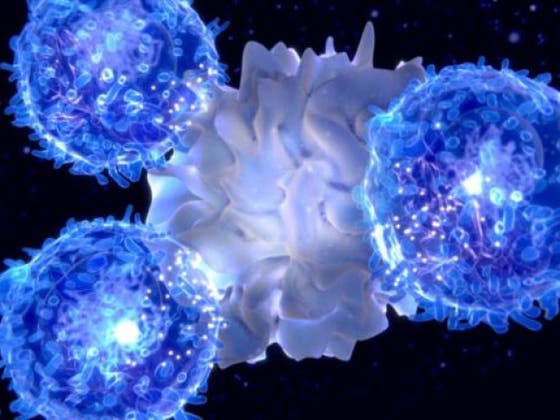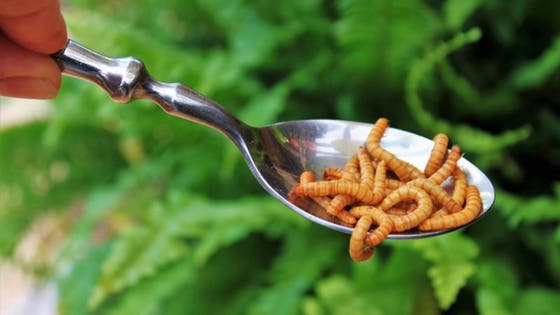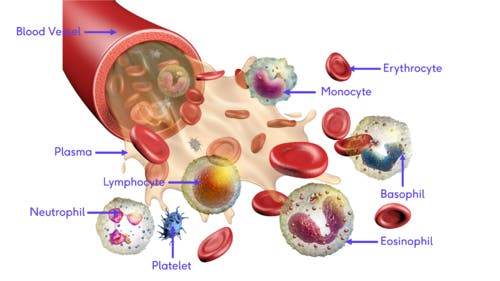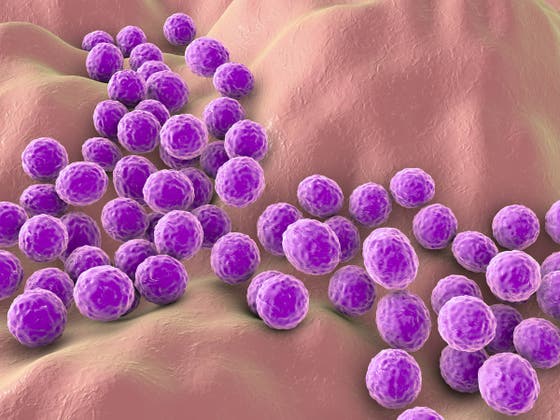Infection and Immunity nieuws
Feb 17: New anticancer immunotherapy shows good efficacy/safety balance in nonclinical studies

In a series of preclinical studies, PhD candidate Inez Johanna and colleagues at UMC Utrecht provided nonclinical evidence of a good efficacy/safety balance of cell therapy based on conventional T cells engineered to express a defined γδT cell receptor (a new type of immunotherapy against cancer). As a result, one of these novel cell therapies is currently being investigated at UMC Utrecht in a Phase I study in adult patients with hematological malignancies.
Read moreFeb 15: Ecraid begins its fight against infectious diseases

In January 2022 Ecraid became a legal entity and is now fully operational to advance knowledge in the field of infectious diseases. This is Ecraid’s initial step as it evolves into a self-sustaining, not-for-profit organisation conducting clinical research for both public and private sponsors.
Read moreFeb 10: Can we use artificial intelligence to safely taper rheumatoid arthritis drugs?

When the disease process in rheumatoid arthritis patients has been brought under control with medication, the medication is usually tapered. Unfortunately, when tapering medication, there is always a risk that rheumatic symptoms will re-appear. Such a flare can usually be treated by increasing the dose of medication. To reduce the risk of a flare, UMC Utrecht has developed a predictive computer model based on artificial intelligence that is now being investigated in a clinical study.
Read moreFeb 8: Automated point-of-care immune system analysis in trauma patients may save lives

With the introduction of fully automated flow cytometry in traumatology, analysis of the immune system in trauma patients can be done much faster, better and cheaper. In addition, it no longer needs to be performed in a specialized laboratory, but can also be done in a point-of-care setting such as the emergency room, the intensive care unit, in general practice or in a field hospital. According to Roy Spijkerman (UMC Utrecht), who defended his PhD thesis on February 8 in Utrecht, this will allow for a better personalized treatment of trauma patients, with the ultimate aim of saving more lives.
Read moreJan 31: Early-life viral infections may increase risk of respiratory infections later in life

Early-life viral infections may increase the risk of respiratory tract infections during the first year of life. This was concluded in the first longitudinal study of upper airway gene expression and microbiota development in infants by an international research group led by professor Debby Bogaert and published in Nature Microbiology.
Read moreJan 27: UMC Utrecht appoints associate professors, eight from Infection & Immunity

At UMC Utrecht, 25 new associate professors, eight of whom are associated with strategic program Infection & Immunity, have been appointed as of January 14, 2022. The talented employees have been appointed based on performance and having qualifications in research, education and management. From strategic program I&I, the following scientists were appointed: Peter Noordzij, Nienke Vrisekoop, Trudy Straetemans, Robert Wisse, Robert Jan Lebbink, Henny Otten, Eric Spierings and Maarten van Smeden.
Read moreJan 19: Improving the allergenicity risk assessment of novel foods

Researchers at UMC Utrecht have found that the ability of a protein to elicit antibodies in our body is very suitable for expressing the allergenicity of novel food proteins. In addition, a roadmap was created that can be followed so that regulators can set acceptance or rejection criteria for novel food proteins. These were the main take-aways from the studies presented by Mark Smits in his PhD thesis.
Read moreJan 19: Oncode collaboration: mobilizing innate leukocytes to attack tumors

In 2021, Oncode Institute organized brainstorm sessions to come up with ideas for cross-disciplinary synergies between Oncode researchers to tackle difficult challenges in cancer research. A group of Oncode Investigators from different Dutch institutes (including UMC Utrecht) came up with an exciting new idea requiring broad collaboration to become successful. This launched a new Oncode Accelerator Project, aiming at mobilizing innate leukocytes to attack tumors.
Read moreJan 18: Effectiveness of 2G and 3G policies have declined

Researchers from TU Delft, UMC Utrecht and Populytics were commissioned by the Ministry of Health, Welfare and Sport to investigate the extent to which different variants of the corona access ticket can help prevent the spread of the corona virus in society. 3G and 2G policies are currently less effective in stopping virus spread than they were two months ago. A 1G policy (only recently negative tested people are allowed access) is much more effective. But even with 1G, the reproduction figure (R) cannot be brought below 1.0 at this time.
Read moreJan 17: Researchers clarify how protein A from Staphylococcus aureus evades the immune system

Staphylococcal protein A is an important immune evasion factor and potential vaccine antigen of the bacterium S. aureus. The protein is likely one of the main contributing factors for the poor efficacy of the antibody-dependent immune response against S. aureus. Ana Rita Cruz at UMC Utrecht concludes in her PhD thesis that understanding how SpA blocks IgG effector functions may help to gain insight for the development of successful anti-S. aureus therapies that can be used as alternatives to antibiotics.
Read more